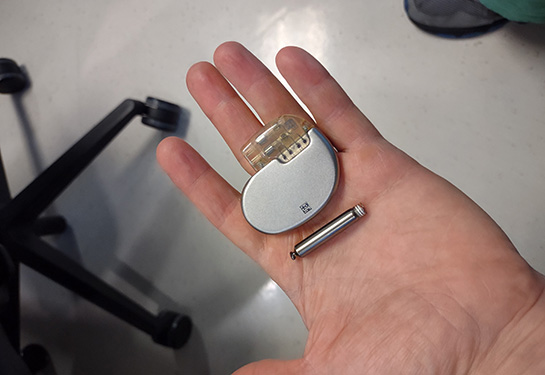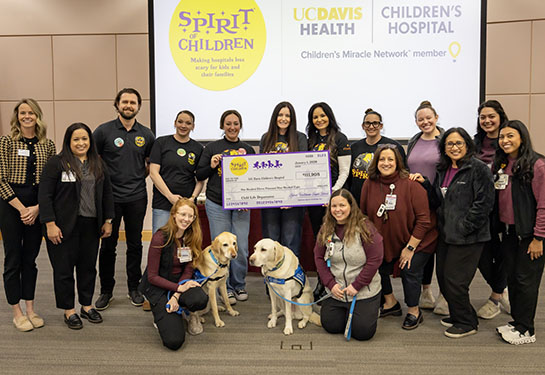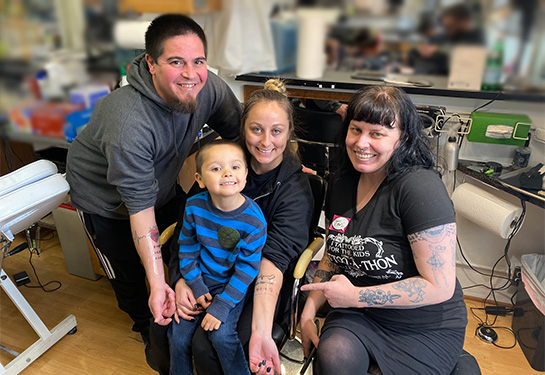Girl gets life-saving dialysis at home through peritoneal dialysis program (Video)
UC Davis Children’s Hospital program trains families in the region
This video is best viewed in Chrome or Firefox.
Angela Lasseter has been performing dialysis at home for her 13-year-old daughter Aija, after she was diagnosed with chronic kidney failure last year.
“Aija needed dialysis for 11 hours every day so we learned to do this at home,” she said.
She was able to do so thanks to the outpatient peritoneal dialysis program at UC Davis Children’s Hospital. Medical staff train pediatric patients and their families to perform home-based dialysis while patients await a kidney transplant. The program was launched in 2016 and UC Davis Children’s Hospital is the only one in the region to offer outpatient dialysis for patients under 10 years of age or 44 pounds.
“They give you everything you need and teach you step by step,” Lasseter said. “We’ve built really great relationships with the team and they have provided as much support as I needed. If I can do this, anyone can do this,” she said. Lasseter performed dialysis at home for daughter for one year, until Aija successfully received a kidney transplant in January.
Some of the program’s highlights and its successes:
- Zero exit site infections
- Decreased peritonitis rates
- High patient satisfaction levels
- Virtual visits (telehealth appointments) for patients within the 33-county area that the hospital serves
- Timely referrals to transplant in collaboration with the UC Davis Transplant Center
- Provides home dialysis training in English and Spanish from two dedicated dialysis nurses
- Offers home visits and 24/7 access to an on-call nephrologist for urgent questions and needs
- Includes access to a patient support group where families on dialysis can connect with each other.
- Dialysis machine, all supplies and fluids are delivered to the home
- UC Davis Children’s Hospital is a member of the Standardized Care to Improve Outcomes in Pediatric Endstage Kidney Disease (SCOPE) collaborative, which prevents infections in children and adolescents on peritoneal dialysis and hemodialysis using large-scale collaboration to identify and spread effective interventions across pediatric care settings.
“Our patients have excellent outcomes and incredibly low infection rates. Many of our children require dialysis for 10-12 hours a day. Our program enables them to get that care safely at home from their parents or caregivers,” said UC Davis pediatric nephrologist Maha Haddad, who leads the program. “I’m very proud of the training that our team provides. We have not had one family refuse this training.



